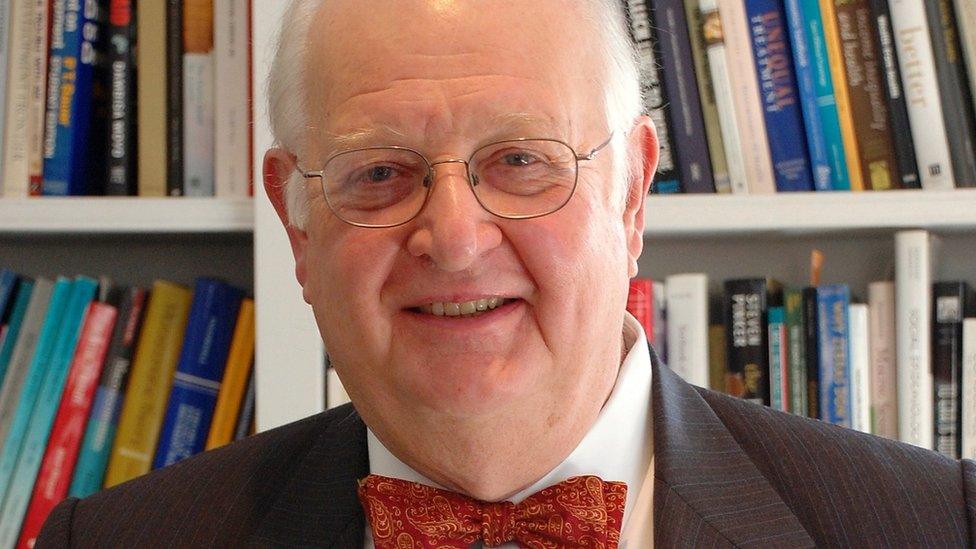Hawick High: The school that produced two Nobel Prize winners
- Published
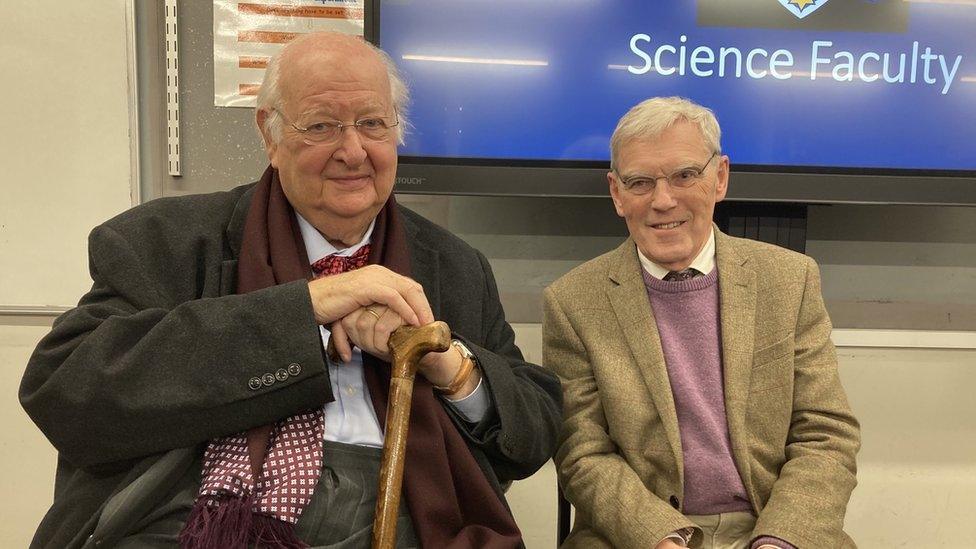
Sir Angus Deaton and Richard Henderson returned to their old school after more than 50 years
Two of Scotland's five living Nobel Prize winners have returned to their Borders high school for the first time in more than 50 years.
Sir Angus Deaton from Princeton University and Cambridge University's Richard Henderson visited the classrooms at Hawick High School.
They met pupils and teachers to discuss their academic journeys.
Head teacher Vicky Porteous said: "For me, meeting my favourite scientists is an absolute thrill."
Both men were born in Edinburgh but moved to the Borders during their childhoods, attending primary in Newtown St Boswells and Newcastleton, before going to Hawick High.
Sir Angus was awarded the Nobel Prize in 2015 for his work in economic sciences.
The 77-year-old Cambridge graduate also received a knighthood in 2016 for services to research in economics and international affairs.
He spent two years at Hawick High School before receiving a scholarship for Fettes College in Edinburgh.
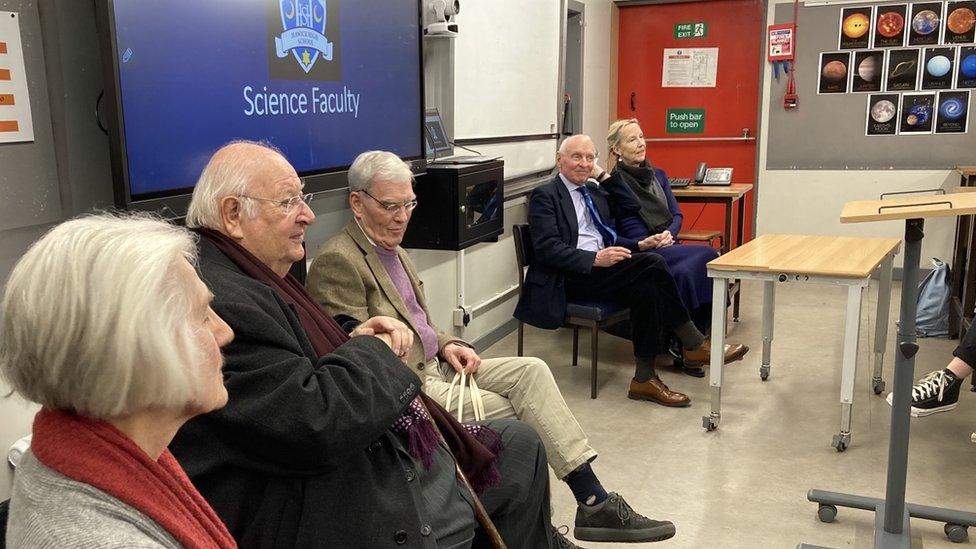
The Nobel Prize winners took part in a Q&A with senior pupils at Hawick High
He said: "Looking back I can relate what happened here at Hawick to what I went on to in later life.
"There were wonderful teachers here, and there were things that I learned in the two years I was here that changed my life.
"Hawick High School gave me the appetite to become an academic and gave me the curiosity to learn more."
During a question-and-answer session with senior pupils, both men revealed they had endured their own struggles to gain pass grades at both school and university.
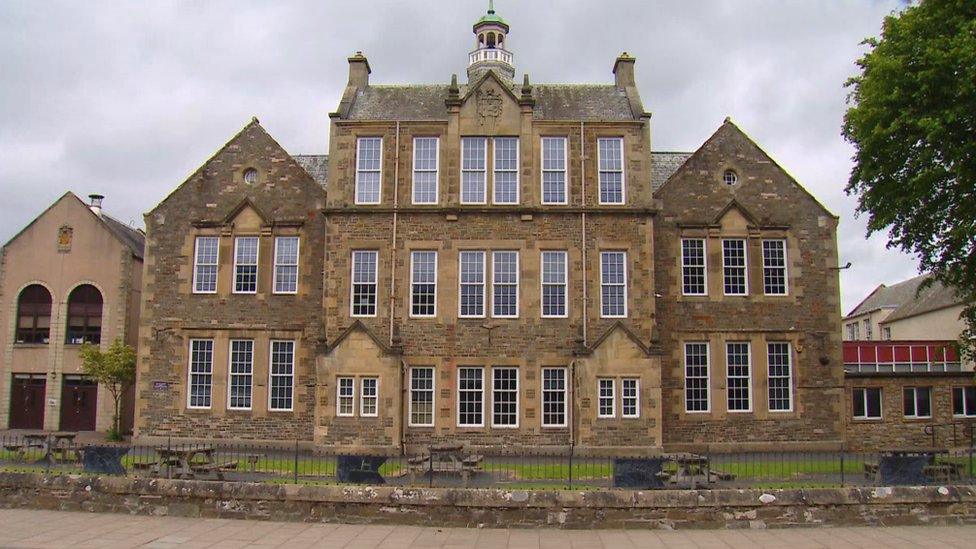
Hawick High School welcomed back three famous pupils this week
Mr Henderson, who received the Nobel Prize in 2017 for chemistry, was one of only four pupils from his village school in Newcastleton to be selected to attend Hawick in 1957.
The 77-year-old admitted it was a traumatic few days adjusting to high school.
He said: "I still vividly remember my first day at Hawick - we came on the train and then had a long trek to the school.
"When the first break came at 11:00, it was totally crowded in the corridors and stairs, and you couldn't move.
"The biggest change was having teachers who were experts in their field.
"Suddenly we were given immense amounts of knowledge and I gradually went from being bottom of most classes to becoming one of the better students."

Scotland and the Nobel Prize
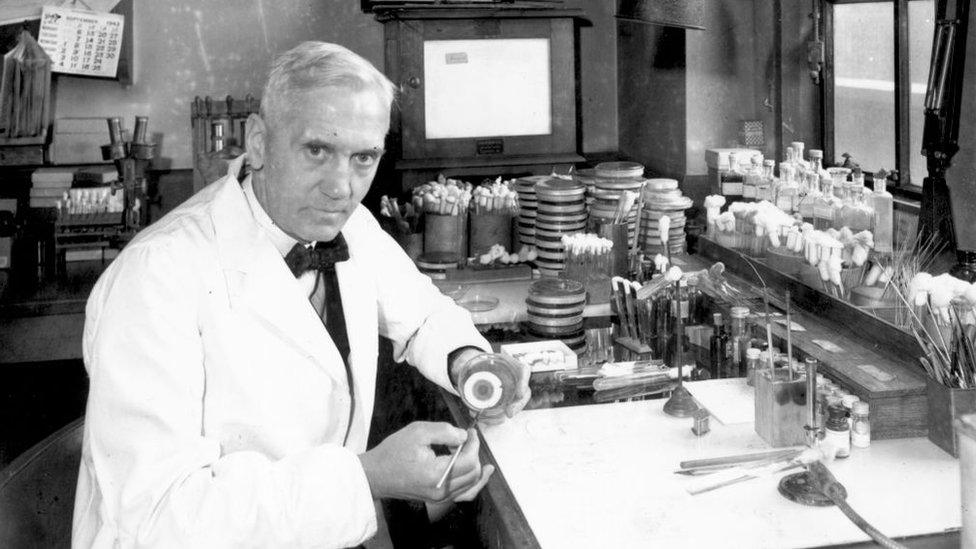
Sir Alexander Fleming won the prize for medicine in 1945
Scotland has a long history of producing recipients of the Nobel Prize since its inception in 1901.
Sir William Ramsay, from Glasgow, was given the prize for chemistry in 1904 in recognition of his services "in the discovery of the inert gaseous elements in air".
Many more have followed, including Sir Alexander Fleming, from Lochfield near Darvel in Ayrshire, who took the prize for medicine in 1945 for the discovery of penicillin.
More recently, Sir James Merrilees, from Minnigaff in Galloway, was recognised for his work in the field of economics in 1996.
The latest Scottish winner was Bellshill's David MacMillan last year for his work on building molecules that are mirror images of one another.
The full list of winners is available on the Nobel Prize website., external

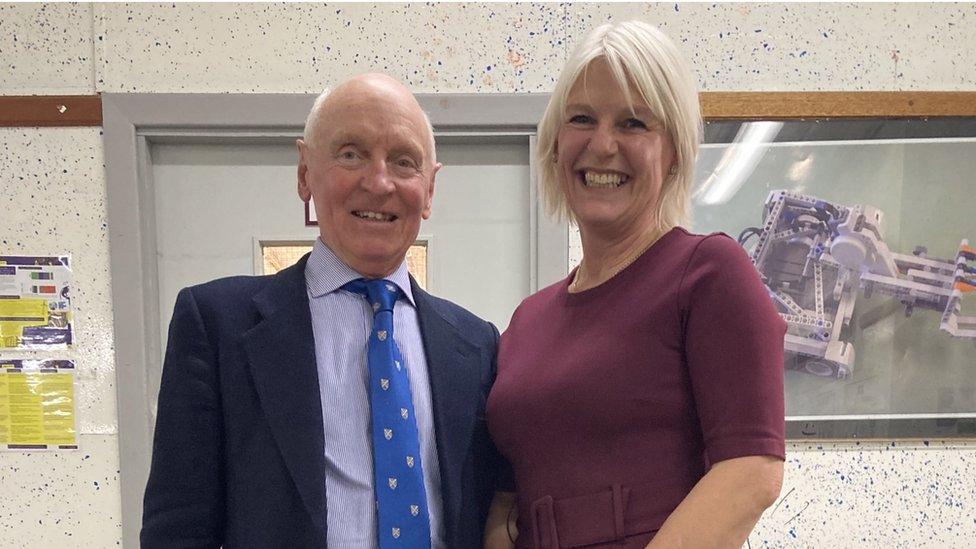
Sir David Wallace and Hawick headteacher Vicky Porteous welcomed the two professors
The two Nobel laureates were accompanied on the trip down memory lane by Sir David Wallace, who was in the same classes as Mr Henderson in the early 1960s.
He went on to be head boy at Hawick High and was knighted in 2004 for services to UK science, technology and engineering.
He said: "It is a great privilege to be able to join Angus and Richard on their return to our school.
"They are two of the five living Nobel laureates born in Scotland - truly a historic occasion.
"We all, along with many others, owe a great deal to the education and wider opportunities that the school provided."
Related topics
- Published8 June 2018
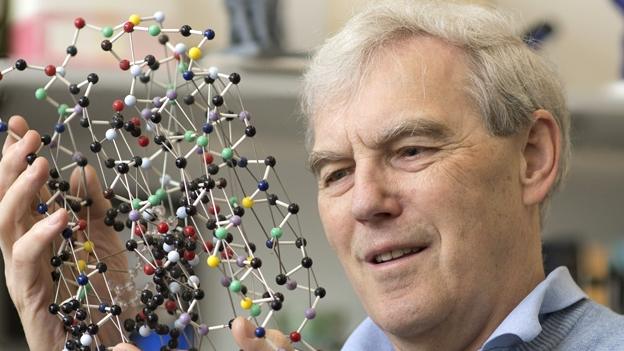
- Published12 October 2015
